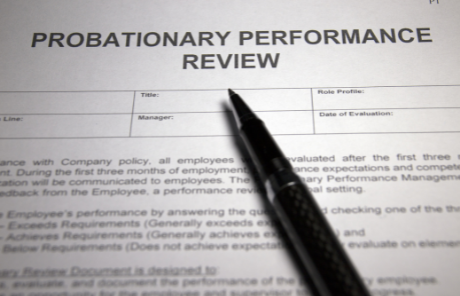
Time to move on? Top 10 Tips to resign gracefully
- September 5, 2023
With the prospect of a new role on the horizon, arguably the hard bit is done. You have aced your interviews, impressed your new Firm, and are no doubt looking to the future and the next steps in your career.
But even with the excitement of a new legal position looming, there is still an incredibly important step to take in making that move – handing in your resignation to your current Firm.
Here we offer our top tips on how to address this often-uncomfortable conversation – and ultimately remain professional, and on good terms as you exit the business.
1. Communicate To Your Manager First
With an exciting new role to look forward to, it can be tempting to tell close associates and friends, however the first person who should hear about it is your reporting manager. If a senior partner, or even your Manager themselves hears about your intention to leave from another colleague, it goes without saying that it won’t leave a favourable impression which is ultimately what a well-thought our resignation is trying to achieve.
Arrange a time to speak to your Manager and let them know the situation first. Face-to-face is ideal as it minimises any misunderstandings or miscommunication, although video call would also work well for those who work remotely or in order to expedite the process. It is best practice to verbally tell your Manager of your intention to leave along with the reasons that have led to that decision as it is highly likely that you will be asked both why you are leaving and where you are going to – so it’s wise to have a response planned.
2. Be Prepared For Conversations Around Negotiation
Whatever the reason or reasons for leaving your current firm, it is always worth having a preliminary conversation before you start looking for new opportunities, to see if those initial reasons may be overcome. If, however that conversation didn’t take place, you should nevertheless consider what you would do should a counter-offer be on the table once you make your intention to resign clear.
In the current market, where demand for legal professionals is outstripping supply, this is exceptionally common, so you need to at least be prepared for such a scenario and ask yourself, would you actually accept a counter-offer?. The answer to that lies in ultimately revisiting the reasons you wish to leave in the first place.
Counter-offers take many forms including increased pay, a promotion, enhanced benefits, or a combination of all of those, and there is no doubt that it can feel flattering to be in that position. However, research suggests that 80% of people who accept a counter-offer tend to leave within 6-12 months of accepting. Is it likely you’ll also be part of that statistic?
3. Prepare Your Resignation Letter
Once the decision to leave is final, you must put this in writing. When it comes to your resignation letter, it should be short and polite. Within the letter itself, it is not necessary to justify your reasons for leaving your current law firm or go into lengthy explanations as you can are likely to have (or have had) a more informal chat about this with your reporting Manager. The document is simply to cover the legalities of ending your contractual agreement with your employer and will be kept on record, so details like the date of the notice, confirmation of notice period, and last working day should be accurate.
You may wish to use the formal communication as an opportunity to highlight things you are grateful for – skills you have learnt, help and advice you have received, and opportunities to boost your legal career that have been offered, but that is not mandatory. Do, however avoid the temptation to criticise your colleagues, boss, partners or clients.
4. Discuss Those Finer Details
Your Manager will most likely want to discuss with you the finer details around how and when you will let colleagues know you are leaving. You may wish to inform them individually, or as a group, or have your Manager tell them for you.
You also need to confirm your notice period and how this affects your new role start date. This should be communicated clearly in your contract of employment, but it is always worth a conversation on whether it is realistic to shorten this (if desired by any party) or even extend it on request.
Whether your notice period is 2 weeks, 2 months or anything in between, its important you are aware of this before giving your new employer a start date that you may not be able to commit to. Be prepared that in some cases, you may be placed on gardening leave rather than working your notice period.
Garden leave (or gardening leave) is when an employer tells an employee not to work either part or all of their notice period. This could be because the employer does not want the employee to have access to sensitive or confidential information they could use in a new job (Source: ACAS) In this case, you are still employed by your employer, just not working for them and therefore you are still entitled to your salary and contractual agreements in this period of time.
5. Plan A Robust Handover
Scheduling time to plan for a smooth transition shows you to be a true legal professional and not someone who leaves a law firm or an employer in the lurch, or projects unfinished. Think about your specific areas of responsibility – current caseloads, unfinished assignments, urgent jobs and upcoming commitments, as well as information on your clients that your successor or wider team will need.
If possible, invest some time in training up your successor, or at least making formal handover notes, to ensure you minimise the impact on the firm when you leave and once again, keep the working relationship positive.
6. Start Clearing Your Desk
Once colleagues are aware that you are leaving, you can start to clear your desk so that it’s ready for the next occupant. Removing paperwork, filing and archiving, binning wastepaper and taking personal items such as photographs home will ensure your workplace is ready, clean and welcoming for the next person.
7. Stay Committed
It may be tempting to spend time planning what you will do in your upcoming new legal role (and if time permits, there is definitely merit in keeping in touch with your new employer during your notice period – following their social media accounts to keep track of the latest news, be aware of any networking events etc) but nevertheless, you are still being paid to do your current job – so it’s important to remain committed to that role until the very end.
Remaining an active team player, working hard up to the last minute and completing casework where possible will be noted by colleagues and your employer and will ensure you leave on a positive note – and your professional reputation within the legal community follows you as you move on.
8. Embrace The Exit Interview
If you are offered an exit interview by your law firm, it’s always a good idea to take that opportunity while you can. These usually take place between yourself and a HR manager and are aimed at establishing any way in which they can improve the firm or addressing issues of which they may be unaware of.
While you can, at this point, bring to light any concerns you might have, keep your observations professional and your criticism constructive, always keeping in mind not to burn any bridges.
Taking these steps will not only provide closure on your previous role but will ensure you leave your law firm a well-respected and professional ex-colleague, with whom your former team and senior partners will be happy to network with and recommend in the future.
Next Steps
If you need any more general guidance as you exit one role for another, or are at the very start of your search for a new opportunity, do give our recruitment specialists a call today.
- Preston: 01772 259121
- Manchester: 0161 9147 357
- Liverpool: 0151 2301 208
- Yorkshire: 0113 3979 929
- Midlands: 0121 2963 819
- London: 0203 7149 446
About Clayton Legal
Clayton Legal has been partnering with law firms across the country since 1999 and during that time has built up an enviable reputation for trust and reliability. We have made over 5,000 placements from Partners to Legal Executives, Solicitors to Paralegals and Legal IT personnel to Practice Managers.
Whether you are building your legal team or are looking for your next career move, we can help. Call us on 01772 259 121 or email us here.











